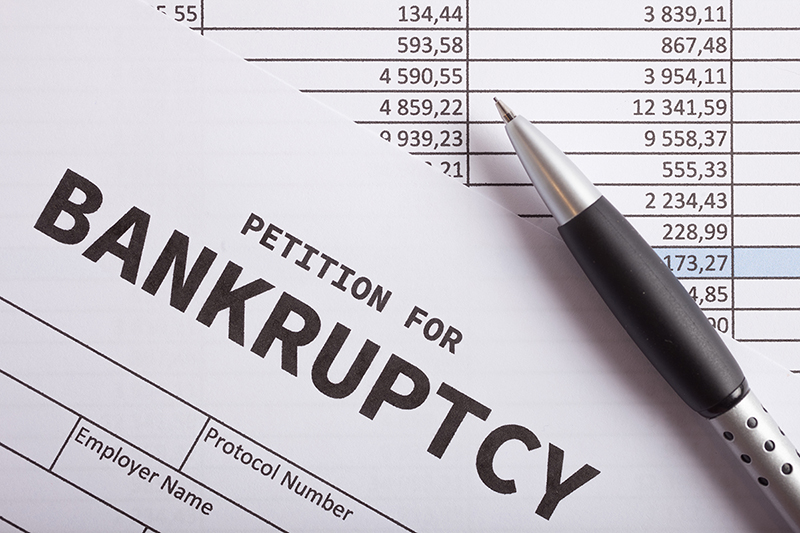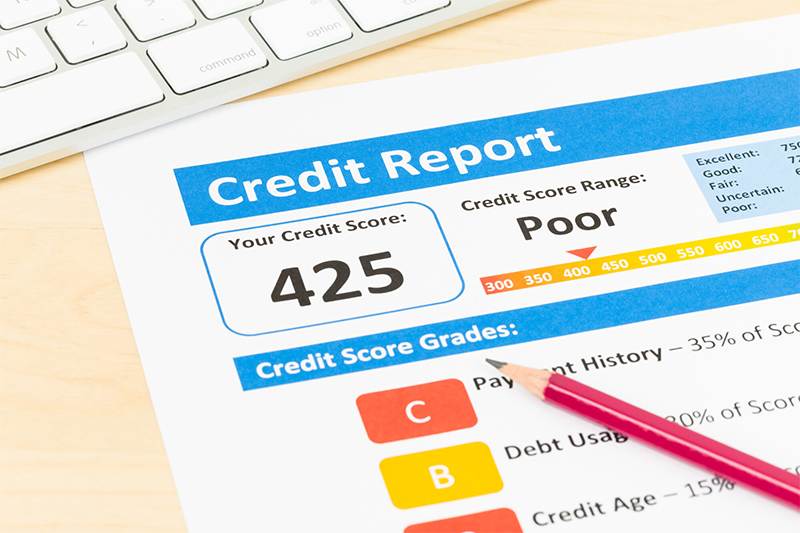Did you know that 16% of bankruptcies are repeat filers? [1]
If you have previously filed for bankruptcy, you may be wondering if you can refile for bankruptcy again. The short answer is yes, but there are some considerations to keep in mind.
How Many Times Can You File for Bankruptcy?
There are limitations on how frequently one can file for bankruptcy and receive a discharge of their debts. The specific rules and timeframes will depend on the type of bankruptcy being sought.
If an individual files for bankruptcy before they are eligible for a discharge, they may still benefit from the automatic stay, which halts creditor actions and collections, but will not receive a discharge of their debts.
If a business or corporation files for bankruptcy, the rules and limitations may be different.
While there are limits on how frequently one can receive a discharge of their debts through bankruptcy, there is no limit on how many times one can file for bankruptcy.

What is Double Filing Bankruptcy?
Filing for bankruptcy multiple times refers to the process of filing for bankruptcy more than once in an individual or business’s lifetime. While it is possible to file for bankruptcy multiple times, there are certain restrictions and limitations to consider.
If you previously filed for Chapter 7 bankruptcy and received a discharge, you must wait at least eight years from the date of your previous filing before you can file for Chapter 7 again. If you previously filed for Chapter 13 bankruptcy and received a discharge, you must wait at least six years from the date of your previous filing before you can file for Chapter 7 bankruptcy and receive a discharge.
While you can file for bankruptcy multiple times, you may not receive a discharge of your debts each time.
How Often Can You File for Chapter 7 Bankruptcy?
Just over 288,000 Americans filed Chapter 7 personal bankruptcy in 2021. [2]
According to the U.S. Bankruptcy Code, individuals can only receive a discharge in a Chapter 7 case once every eight years. This means that if you have previously filed for and received a discharge in a Chapter 7 bankruptcy case, you must wait at least eight years from the filing date of the previous case before you can file for Chapter 7 again and receive another discharge.
The eight-year waiting period is measured from the filing date of the previous case, not the date of discharge. This means that if your previous Chapter 7 case was dismissed without a discharge, the waiting period may be shorter.
You may be eligible to file for Chapter 13 bankruptcy, which involves creating a repayment plan to pay off some or all of your debts over a period of three to five years.

How Often Can You File for Chapter 13 Bankruptcy?
Chapter 13 bankruptcy allows individuals with a regular income to restructure their debts and create a repayment plan over three to five years. This can be a helpful option for those who want to avoid liquidating their assets through Chapter 7 bankruptcy.
If you have previously filed for Chapter 13 bankruptcy and received a discharge, you will need to wait at least two years from the date your previous case was filed to file for Chapter 13 bankruptcy again. If you previously filed for Chapter 7 bankruptcy and received a discharge, you will need to wait at least four years from the date your previous case was filed to file for Chapter 13 bankruptcy.
The goal is to ensure that individuals have the opportunity to reorganize their finances and get back on track, while also preventing them from repeatedly seeking bankruptcy protection.
What Happens to Your Credit After Filing Bankruptcy Multiple Times?
When you file for bankruptcy, it can have a significant impact on your credit score. Your credit score is a measure of your creditworthiness and is used by lenders to determine whether to extend your credit and at what interest rate. Filing for bankruptcy can cause your credit score to drop significantly, making it more difficult to obtain credit in the future.
After filing for bankruptcy multiple times, the impact on your credit score may be cumulative. Lenders may view you as a high-risk borrower, making it even more challenging to obtain credit. Some lenders may be hesitant to extend credit to individuals who have filed for bankruptcy multiple times, as it may signal a pattern of financial instability.
A Chapter 7 bankruptcy can stay on your credit report for up to 10 years, while a Chapter 13 bankruptcy can remain for up to 7 years.
Over time, with responsible financial management, it is possible to rebuild your credit. This can involve making timely payments, reducing your overall debt, and practicing good financial habits.

Refiling Bankruptcy After a Dismissal
A dismissal may occur due to mistakes or errors in the filing process, which can be corrected in a subsequent filing. If your case was dismissed because of fraudulent activity or other serious misconduct, you may face challenges in refiling for bankruptcy.
The Bankruptcy Code sets time limits on when you can refile for bankruptcy after a dismissal. If your previous case was dismissed without prejudice, meaning that it can be refiled, you may be able to file a new bankruptcy case immediately.
You may be required to provide more detailed information about your financial situation, demonstrate that you have made efforts to address the reasons for the previous dismissal, or even seek court approval to proceed with the new bankruptcy case.
Debt Relief Options Other Than Bankruptcy
- Debt Settlement: Debt settlement involves negotiating with creditors to settle debts for less than the full amount owed, making it more manageable to pay off.
- Credit Counseling and Debt Management Plans: Credit counseling agencies offer debt management plans that negotiate with creditors for lower interest rates or extended payment periods. Participants make consolidated monthly payments to the agency, which distributes funds to creditors.
- Debt Consolidation Loans: Debt consolidation loans combine multiple debts into one with a more favorable interest rate and payment terms, simplifying the repayment process.
- Loan Modification: Borrowers negotiate with lenders to adjust existing loan terms, such as interest rates or repayment periods, to make payments more manageable.
- Government Assistance Programs: Government programs provide financial aid for various needs, including housing, healthcare, unemployment, and education. Eligibility depends on factors like income and household size, with applications available through state or federal agencies.

Contact Frego Law today to discuss your unique circumstances and get the assistance you need to file for bankruptcy.
FAQs
Some of the alternatives to filing bankruptcy multiple times include debt consolidation, negotiating with creditors to establish repayment plans, seeking financial counseling to develop a sustainable financial plan, or exploring other forms of debt relief such as debt settlement or credit counseling.
If you are considering filing for bankruptcy multiple times, seek guidance from a knowledgeable bankruptcy attorney. They can provide valuable insights into the legal requirements and implications of your decision.
It may negatively impact your credit score and financial standing, making it harder to secure future loans or lines of credit. Lenders may also view multiple bankruptcy filings as a risk, making it more challenging to access favorable terms for borrowing. The court may scrutinize subsequent bankruptcy filings more closely, potentially leading to limitations on certain privileges, such as the automatic stay. Filing bankruptcy multiple times can have long-lasting implications for your financial health and well-being.
Sources:
[1] Armstrong, C. (2021, March 11). Who Files Bankruptcy? The Balance. https://www.thebalancemoney.com/who-files-bankruptcy-316194
[2] Caporal, J. (2023, January 5). Chapter 7 Bankruptcy and Chapter 13 Bankruptcy Statistics. The Motley Fool. https://www.fool.com/the-ascent/research/personal-bankruptcy-statistics/




